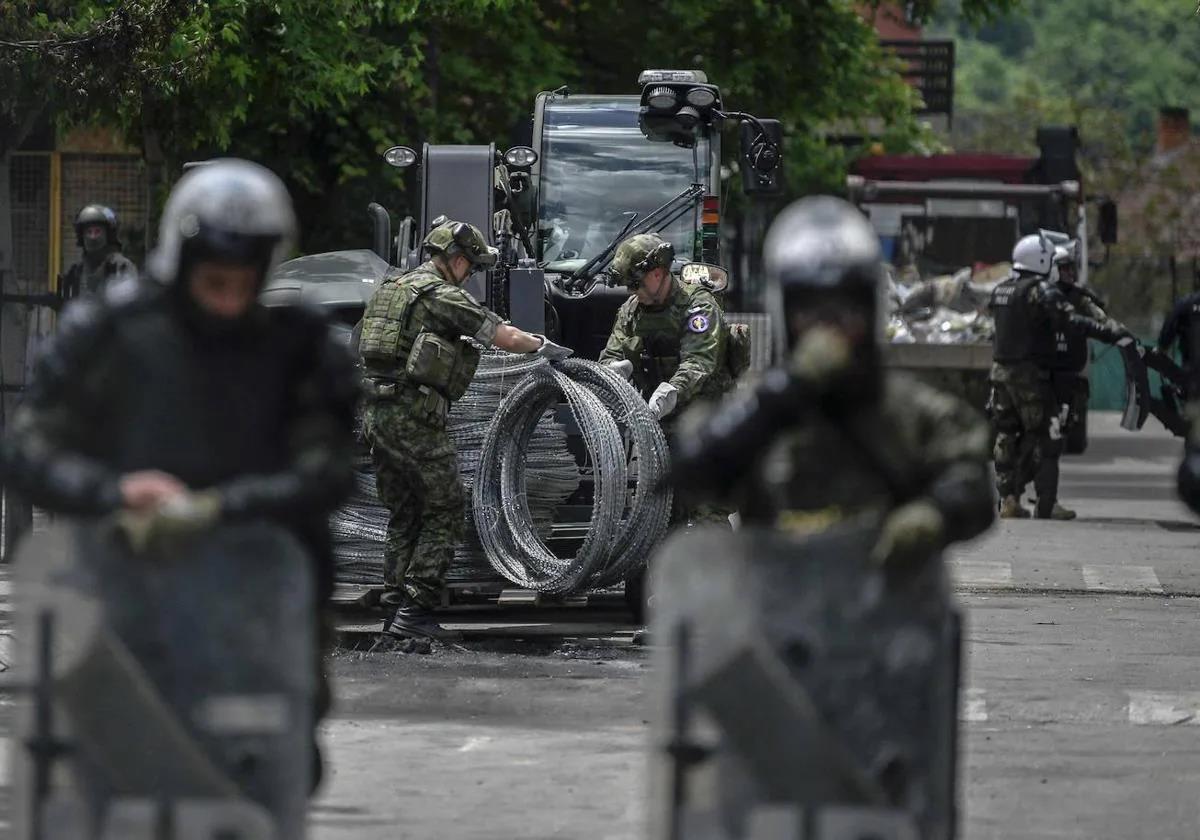Spain is one of the Nato countries which spends the least on defence
The allied country allocates the least percentage of its GDP to defence, at just 1.28%, and trails the other NATO nations
Nato secretary general Jens Stoltenberg's continuous calls to increase military spending have led to 23 allied countries closing the year with an investment in defence of more than 2% of their Gross Domestic Product (GDP), compared to the ten that achieved this in 2023. However, Spain is at the bottom of this list, being the allied country that allocates the least percentage of its GDP to defence, with just 1.28%.
It is far from the target set by the North Atlantic Treaty Organization alliance. Other countries lagging behind are Canada, Belgium, Luxembourg and Slovenia. In contrast, the allies that spend the most are Poland (4.12%), Estonia (3.43%) and the United States (3.38%). The data provided by the Atlantic Alliance show a rearmament of allied countries following the Russian invasion of Ukraine, which has led Nato to double its military spending this year to 17.9%.
In his meeting with US President Joe Biden, Stoltenberg said "this is the biggest increase in decades", which shows Natomember states are "stepping up" and "taking responsibility". The Norwegian has already expressed on numerous occasions his intentions for the 2% spending to be considered "a floor and not a ceiling".
Rutte wins more support
The military alliance is trying to pave the way for its Washington summit, to be held from 9 to 11 July. The summit will be used to appoint the next Nato secretary general to replace Stoltenberg, with Hungary announcing on Tuesday it will support the candidacy of Dutch Prime Minister Mark Rutte. Viktor Orbán announced he will back Rutte's aspirations, after the latter assured him in a letter he would respect Budapest's decision not to participate in the support for Ukraine.
The two leaders met on the sidelines of Monday's informal meeting of European Union (EU) leaders in Brussels. Rutte also met with the leaders of Romania and Slovakia, the other two allies who had not yet endorsed his candidacy for Nato chief.
In the Hungarian case, part of his rejection of Rutte stemmed from the Dutch Prime Minister's remarks about Hungarian regulations banning lectures on homosexuality in schools, which Orbán considered an insult.
Far from the target
In his letter on Tuesday, Rutte pointed out Hungary's "valuable" role in the military alliance as a stabiliser in the region and acknowledged the country's work in the war in Ukraine, taking in thousands of refugees. He also said he will respect the pact between Stoltenberg and Orbán to exempt Hungary from participating in military and economic support for Kiev.
Orbán's response was swift: "Hungary is ready to support Prime Minister Rutte's candidacy for Nato secretary general," the Hungarian leader said. On Tuesday, Slovakia announced it will also back the Dutch Prime Minister as the next Nato secretary general. As a result, leaders are gradually closing ranks around Rutte, who is the most widely supported contender for Nato secretary general.

